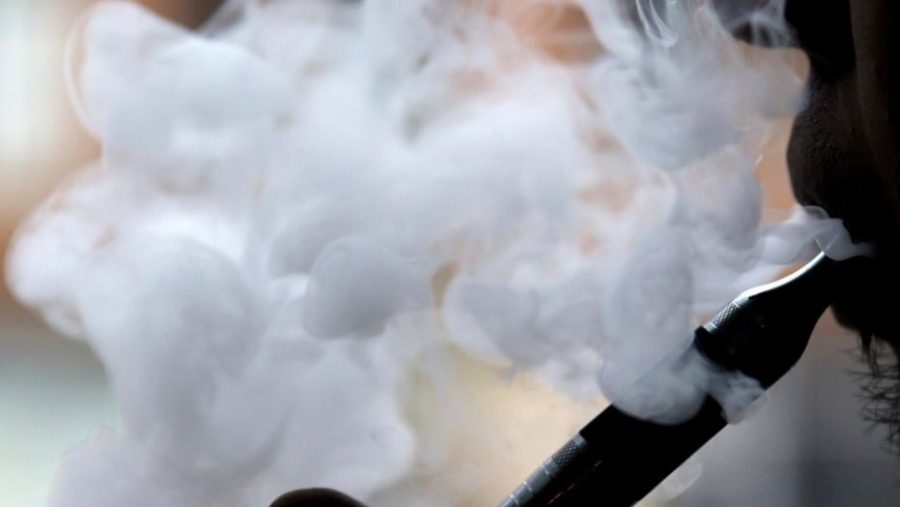CBD vape consumers may fail urine drug tests, say researchers
Consumers who don’t get high on cannabis’ psychoactive compound tetrahydrocannabinol (THC) but rather, choose to dose up on the non-psychoactive compound cannabidiol (CBD), may still struggle to pass a drug test, according to researchers.
A small-scale pilot study was carried out into the results of urine samples provided by people who vape CBD products. The study was published in the Journal of Analytical Toxicology.
The researchers are optimistic that the findings of this study will demonstrate the legal obstacles of CBD products in relation to drug testing.
Some of the CBD vape solutions contained a miniscule amount of the mind-altering substance THC. Even after inhaling small amounts of THC, one-third of CBD vapers tested positive for the psychotropic substance.
“It’s a common perception that CBD is THC-free,” said senior study author Ryan Vandrey, an associate professor at the Johns Hopkins School of Medicine in Baltimore, Maryland. “But that’s not necessarily the case.”
Vandrey says that the study on CBD drug testing should serve as a precautionary measure for consumers who may be blissfully unaware of the fact that the solution they consume may contain traces of the psychoactive compound THC.
“If the person is subject to workplace or roadside testing or testing for any criminal justice purpose, they could come up positive,” says Vandrey.
Cannabis drug test study: Male and female participants consumed a combination of CBD and THC
Three men and three women were recruited by Vandrey and his team of researchers to consume 100 percent pure cannabis or CBD. The solution contained by each study subject was rich in CBD, as opposed to THC; containing around 10.5 percent CBD and 0.39 percent THC.
The male and female participants each consumed an active CBD product and a placebo at different intervals. Methods of administration were mixed up to fully determine the effects of combining (for example) a capsule and a vape product.
The CBD-dominant cannabis samples contained slightly above the 0.39 percent THC threshold permitted in hemp-derived CBD products; 0.30 percent is the cut-off for hemp CBD products.
Hemp-derived CBD products are legal, following the passing of the 2018 Farm Bill that legalized hemp production nationwide. However, cannabis-derived products may contain traces of THC. As a result of this, consumers could fail cannabis drug testing if they are not educated, says Vandrey.
Cannabis drug test study: Single high-THC vaping episode produced positive results
Based on the results of the CBD drugs test in study, only vaporized CBD/THC combinations produced a positive drug test reading. Two of the six study subjects failed cannabis drug testing after just one episode of vaping.
This means that CBD consumers may want to think twice about using vaporizer devices or, at the very least, visit a knowledgeable bartender who can point them in the right direction for a THC-free CBD solution.
Hemp-derived CBD consumers aren’t exactly safe either, says Andrew. The lead researcher claims that multiple vaping episodes of hemp-derived CBD solutions could still trigger a positive THC result. Since THC can accumulate inside the human body, consuming multiple doses of CBD on a daily basis may have an adverse effect on drug test readings.
“The packaging of those products most commonly suggests using them two times a day,” says Vandrey, who makes a good point. With some medical cannabis consumers reliant on more than one dose of CBD per day, cannabis drug testing poses a problem.
“[The study] confirms that even if you are exposed to the low levels of THC in commonly produced cannabidiol products, there is a risk of a positive result in employer drug screens. There have been several cases highlighted in the media in which people using CBD products tested positive for THC. So there can be significant legal ramifications,” said Ziva Cooper; she assumes the role of director of research for the Cannabis Research Initiative at the University of California, Los Angeles.
“You would expect [THC] to accumulate,” adds Cooper.”So the risk would presumably increase with daily use of those products. It’s really impressive that with only one drug administration two out of six showed positive. Most people wouldn’t think that would happen.”
Dr. Michael Lynch says that the cannabis drug testing study should be taken seriously by consumers, since the legal ramifications of being caught driving under the influence or working over the limit may be life-disrupting. Lynch is the medical director of the Pittsburgh Poison Center at UPMC.
“People who are potentially going to be drug tested should be aware that even if they are using a predominantly CBD product it’s possible that it could trigger a positive urine drug screen,” says Lynch. “Employers and review officers should also be aware of this. There’s no way of determining the source of the THC once it’s in your body.”








